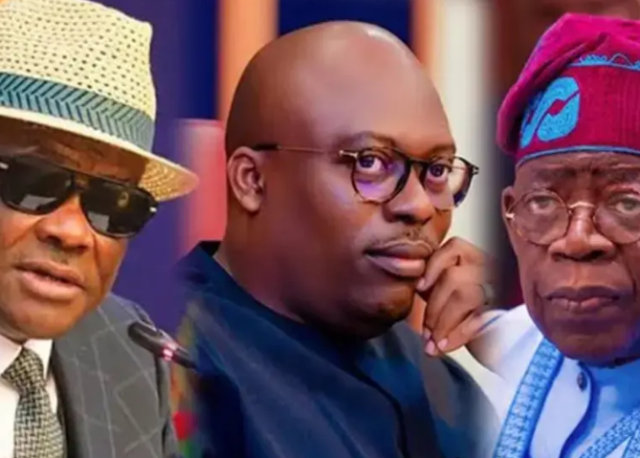In this report, Vanguard’s Law & Human Rights traces the background facts surrounding the ongoing political crisis in Rivers State, identifies the political cum legal measures taken so far to address the situation with a survey of top lawyers on the constitutionality of President Bola Tinubu’s recent intervention at a time several trial courts are seized of the facts of the case.
By a state-wide broadcast, Rivers State Governor, Siminalayi Fubara, last Monday declared his determination to implement an eight-point resolution brokered by President Bola Tinubu to resolve the lingering crisis between him and his predecessor, Nyesom Wike.
The crisis which started like a child play about two months ago between the two actors had shattered the peace in the state and made mockery of constitutional democracy in the oil-rich state.
Although the Peoples Democratic Party, PDP, on whose back Fubara rode to Rivers State Government House warned against the implementation of the controversial peace pact, the governor on Christmas day vowed to go ahead with it, having realised that its execution would ensure lasting peace in the state. President Tinubu at a meeting with governors in Lagos on Tuesday applauded Governor Fubara for running with the resolution.
But before the political solution was provided by President Tinubu, not less than four separate lawsuits had been instituted before different courts on the issue while another class action suit was filed by five senior citizens to interrogate the constitutionality of Tinubu’s political solution.
How it all started
By a landslide victory, Fubara, the anointed candidate of Wike, won the last gubernatorial election which held in Rivers state on March 18, 2023, with 302,614 votes to beat the All Progressives Congress, APC, governorship candidate, Pastor Tonye Cole, who came second with 95,274 votes and others.
Wike who was elated by the emergence of his candidate formally handed over the baton of governance in the state to Fubara on May 29, 2023. Although Wike was appointed a Federal minister, he still retained more than a passive interest in his state.
Indeed, like a headmaster, Wike was overseeing Fubara in the running of the state as he was instrumental in the appointment of most of the governor’s aides, including commissioners and the Chief Security Officer which his godson was not happy with.
Notwithstanding, both of them (Wike and Fubara) were at peace with each other until sometime in October when crisis started brewing over the purported overbearing influence of the godfather on the godson.
Related News
Is the use of CCTV camera a beach of data privacy?
Body of Benchers’ voyage to arrest conflicting court verdicts
Why NJC should go after judges with luxury lifestyle — Adegoke, SAN
Although the details of the issues between them were not immediately clear, the disagreement between the two grew so bad that it created tension and division in the state with an attempt by state lawmakers to impeach the sitting state governor.
The crisis
But four of the 32 state lawmakers loyal to Governor Fubara, made frantic efforts to frustrate the process. As soon as it became apparent that the state lawmakers were after Fubara’s job, the state legislature also began to suffer some attacks which some pundits traced to the executive ostensibly to frustrate the impeachment process against the governor. For instance, on October 29, 2023, some arsonists bombed the House of Assembly Complex, destroying a section of the complex.
Wike who was resident in Abuja fingered Fubara as the mastermind of the incident, saying he took the step after learning about the impeachment attempt against him.
Less than 24 hours after the unknown arsonists set the state House of Assembly ablaze, the lawmakers perceived as the loyalists to Wike held a sitting in a Committee Room on October 30, 2023, and removed the Assembly leader, Edison Ehie, one of the four lawmakers backing Fubara and who had in the past, opposed and blocked avenues to impeach the governor.
Ehie’s sin, according to the Rivers State House of Assembly Speaker, Martins Amaewhule, was that he was not attending the assembly’s sittings regularly.
At a time when plots to remove the governor at all costs became thicker, President Tinubu intervened in the crisis bringing about a graveyard peace in the state.
However, the details of the resolution at the peace meeting between Tinubu and the warring parties in Rivers State were not made public.
But barely a month after Tinubu’s intervention, the fragile peace in the state suffered a major setback following the purported inability of Governor Fubara to meet what a source described as unfulfillable demands by ex-Governor Wike.







